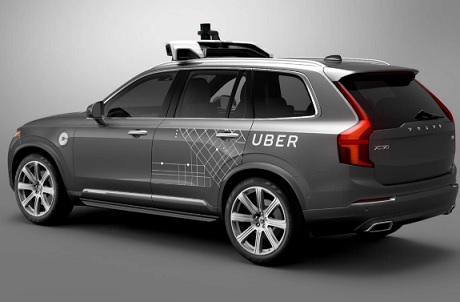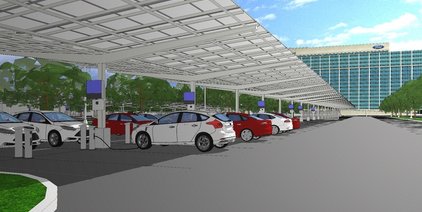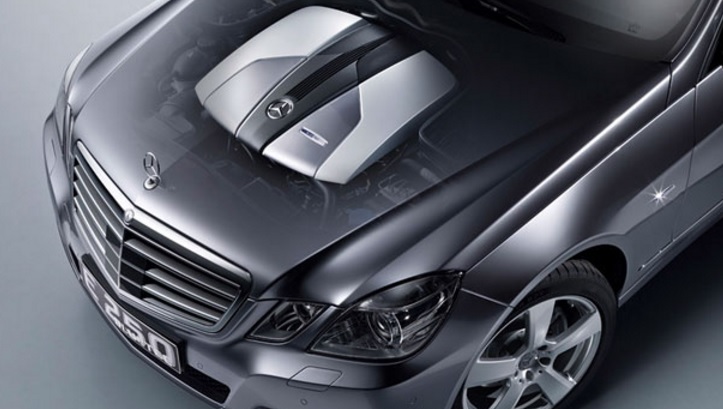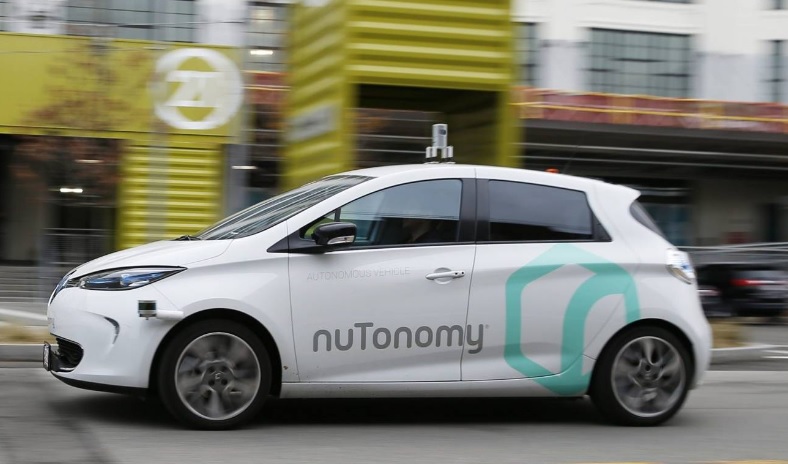BMW and Daimler JV for robotaxi fleets: It looks like BMW and Daimler may be merging their car-sharing divisions together to take on Uber and Lyft. A person  familiar with the matter told Reuters that BMW has bought out its partner, German car rental company Sixt, from its joint venture that had backed the DriveNow car-sharing unit. The two automakers are talking about a new JV that would offer car sharing, ride-hailing, electric vehicle charging, and digital parking services. Daimler’s Car2Go has had a strong presence in Europe and the U.S., and DriveNow has been growing in these regions. Ride-hailing itself is expected to be a $285 billion segment by 2030 once self-driving ride-hailing services are in place, according to Goldman Sachs. A senior executive at one of the two German carmakers who declined to be named said the new JV “will create an ecosystem which can also be used for managing robotaxi fleets.”
familiar with the matter told Reuters that BMW has bought out its partner, German car rental company Sixt, from its joint venture that had backed the DriveNow car-sharing unit. The two automakers are talking about a new JV that would offer car sharing, ride-hailing, electric vehicle charging, and digital parking services. Daimler’s Car2Go has had a strong presence in Europe and the U.S., and DriveNow has been growing in these regions. Ride-hailing itself is expected to be a $285 billion segment by 2030 once self-driving ride-hailing services are in place, according to Goldman Sachs. A senior executive at one of the two German carmakers who declined to be named said the new JV “will create an ecosystem which can also be used for managing robotaxi fleets.”
California increasing EV goal and incentives: California Gov. Jerry Brown on Friday signed an executive order “to curb carbon pollution from cars and trucks and boost the number of zero-emission vehicles driven in California.” Brown’s plan had previously been to have 1.5 million zero emission vehicles on California roads by 2025; the governor now wants to see at least five million ZEVs in the state by 2030. That will be supported by a $2.5 billion plan, with much of that going to buyer rebates and the charging infrastructure.
Winners named for Green SUV, Luxury Car, and Connected Green Car: Three automakers were handed green vehicle awards last week during the Washington Auto Show. The Kia Niro took Green Car Journal’s Green SUV of the Year. The small crossover initially debuted in a hybrid with 52 city and 49 highway mpg; a plug-in hybrid with 105 MPGe; and an all-electric version displayed earlier in the month at the Consumer Electronic Show with a production version expected to come out later this year. The Karma Revero was named Green Luxury Car of the Year. It has an aluminum spaceframe and powered by an electric drivetrain using two electric motors. It also comes with a solar roof to supply some of the recharging, and more of it through an onboard engine-generator. The Cadillac CT6 Plug-in Hybrid won the Connected Green Car of the Year category. The General Motors’ division flagship sedan travels up to 31 miles on battery power with an overall range of 430 miles and offers a high level of luxury and performance. It took the award category for its connectivity, driver assist systems, and on-board electronics.
Winners of Global Cleantech ranking: Fifteen transportation companies made it to  the prestigious 2018 Global Cleantech 100, produced by Cleantech Group. The Global Cleantech is based on recognizing the most innovative and promising ideas impacting the future from a wide range of industries. As for the transportation, here are the 15 that made the list:
the prestigious 2018 Global Cleantech 100, produced by Cleantech Group. The Global Cleantech is based on recognizing the most innovative and promising ideas impacting the future from a wide range of industries. As for the transportation, here are the 15 that made the list:
Bla Bla Car – French carpooling online marketplace
Chargepoint – one of the world’s largest electric vehicle charging station suppliers.
Didi – Chinese ride-hailing company
eMotor Works – Developer of software and hardware to turn EV chargers into networked nodes of a cloud-connected, grid services platform
Gogoro – Developer of electric scooters and the necessary battery swapping infrastructure for their use
Lilium – Developer of a battery-powered, fan-propelled vertical takeoff and landing commuter aircraft
Lyft – one of the world’s largest ride-hailing companies
Moovit – An Israeli developer of a mobile app that aggregates real-time public transportation data
Nauto – is building a data platform for autonomous mobility that makes driving safer and fleets smarter.
Navya – French developer of a self driving electric vehicle capable of carrying up to 15 passengers
Nutonomy – a developer of autonomous car software
Otonomo – a developer of software to connect autonomous cars with each other and with digital infrastructures and exchange data in real time
Peloton – a developer of vehicle-to-vehicle communication systems for truck fleets
Proterra – an innovator in heavy-duty electric transportation, primarily electric buses
Visedo – a Finland-based manufacturer of heavy-duty hybrid and electrical drive trains

 between 2008 and 2016 may have had emissions defeat devices, according to German newspaper Sueddeutsche Zeitung. In May, Daimler was subject to a search warrant granted by the District Court of Stuttgart that led to a raid and allegations made about the defeat devices. Engines used in the Mercedes C, E, G, R, ML, S, and CLS class models badged 320 and 350 Bluetec with 3.0-liter V6 engines are being investigated; Mercedes S 250 and E 300 Bluetec models in four-cylinder diesel 1.8 and 2.2 liter models; and diesel-powered Sprinter vans.
between 2008 and 2016 may have had emissions defeat devices, according to German newspaper Sueddeutsche Zeitung. In May, Daimler was subject to a search warrant granted by the District Court of Stuttgart that led to a raid and allegations made about the defeat devices. Engines used in the Mercedes C, E, G, R, ML, S, and CLS class models badged 320 and 350 Bluetec with 3.0-liter V6 engines are being investigated; Mercedes S 250 and E 300 Bluetec models in four-cylinder diesel 1.8 and 2.2 liter models; and diesel-powered Sprinter vans. announcement to pull the U.S. out of the Paris climate agreement. It’s expected to reduce carbon emissions by at least five million tons by 2025. The electric cars will be powered by 100% renewable energy and it will all start with its nuTonomy vehicles coming out later this year in Boston. Lyft’s efforts will also be supported next year through a large test fleet of self-driving Chevy Bolts with its investor, General Motors. Lyft will be well positioned the three technologies that market analysts expect to shape the auto industry – electric, autonomous, and shared mobility services.
announcement to pull the U.S. out of the Paris climate agreement. It’s expected to reduce carbon emissions by at least five million tons by 2025. The electric cars will be powered by 100% renewable energy and it will all start with its nuTonomy vehicles coming out later this year in Boston. Lyft’s efforts will also be supported next year through a large test fleet of self-driving Chevy Bolts with its investor, General Motors. Lyft will be well positioned the three technologies that market analysts expect to shape the auto industry – electric, autonomous, and shared mobility services.